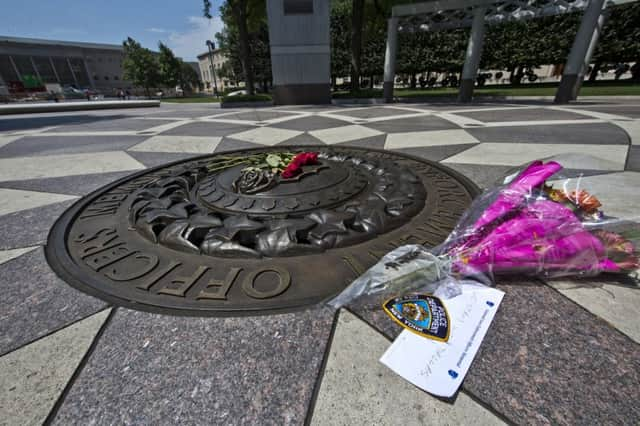Leader comment: Calm must follow anger for US to remain united


If Dallas was the location for the first strike on the dreams of a country that aspired to a civil and just way of life, the Texas city has once more become the focus of a deadly attack that threatens to unravel the very fabric of its society.
The brutal, calculated murder of five police officers threatens to inflame an already wrathful row over race relations in the US. It is an atrocity that raises a multitude of questions, not least how the lack of restrictions over the sale of high-powered assault-style rifles can in any way continue to be defended.
Advertisement
Hide AdAdvertisement
Hide AdRace and the police, however, are the twin, intersecting issues that will define this tragedy, and how the country responds might very well define its future path.
It is three years since the Black Lives Matter movement took root. The activist group coalesced after George Zimmerman was acquitted of the second-degree murder of the teenage African-American student, Trayvon Martin, but in truth, its genesis can be traced back several years previously.
The Rodney King riots were the first major flashpoint in recent American history which blew up long-standing tensions surrounding race and policing. In time, they gave rise to a culture of protest that railed against the inability of authorities to tackle one the country’s most enduring problems – that of racial tension.
A generation on, that failure is entrenched. The latest angry response now poses a clear and present danger to the nation’s values.
If the claims of the dead gunman are sincere, yesterday’s bloodshed was carried in response to the spate of shootings of black men by police. But let us be clear – this was no act of protest. It was one of retribution, executed with a murderous intent. This was payback through the form of targeted assassinations, the repercussions of which are potentially calamitous.
It was a tragedy designed to usher in further tragedies and although the ruthlessness with which it was carried cannot help but provoke an emotional response, now must be the time for unity across the US.
That will not be easily achieved, especially in a climate when one of the most fractious US election campaigns in history has turned the public discourse into one defined by resentment and, increasingly, hatred.
But if one voice deserved to be heard above all others amid the cacophony yesterday, it was that of Quinyetta McMillon, the mother of the oldest child of Alton Sterling, the 37-year-old black man killed on Tuesday by two white police officers in Louisiana during a struggle outside a convenience store.
Advertisement
Hide AdAdvertisement
Hide AdIn a statement, she said her family wholeheartedly rejected such a “reprehensible act” and cautioned that “responding to violence with violence is not the answer.”
It is a plea that has been made countless times before in the turbulent history of the US, but it seems more crucial than ever that it be heeded now. The vast racial disparities in how police employ deadly force will not be closed easily, though the work that is required to do so will made easier if calm prevails.
All’s fair in love and war
The decision to allow women in ground force combat roles is a long overdue victory for gender equality.
It is an issue that has divided people, including senior armed forces officials, on many fronts.
Objections have, for the most part, hinged on perceived, or in some cases actual, physical and psychological differences between a man and a woman. Some even questioned whether having a woman in the line of fire line could make male counterparts feel uncomfortable or “unsafe”.
Then there was the public response to female casualties argument, that people would find it harder for a woman to die in the frontline than a man. But surely any casualty of war is tragic, no matter what the gender.
All employers should be welcoming to women, and that includes the armed forces. Until now 30 per cent of military roles were off-limits to women. That was hardly fair. And something senior staff admitted was hindering recruitment.
The British Army had already concluded allowing women into combat would not have an adverse effect on a unit’s cohesion or ability to fight.
Advertisement
Hide AdAdvertisement
Hide AdToday, ground combat is very much about endurance and surely our armed forces would want the best person for the job, no matter their sex. Ultimately they want someone to be able to stay the pace both mentally and physically. Training will ensure only those good enough make it to the frontline.
We can’t overlook the fact the army’s own research found less than 5 per cent of the 7,000 women now serving would pass current tests to join the infantry. At least removing this ban lets those who want to do it and can do it, to actually do it.